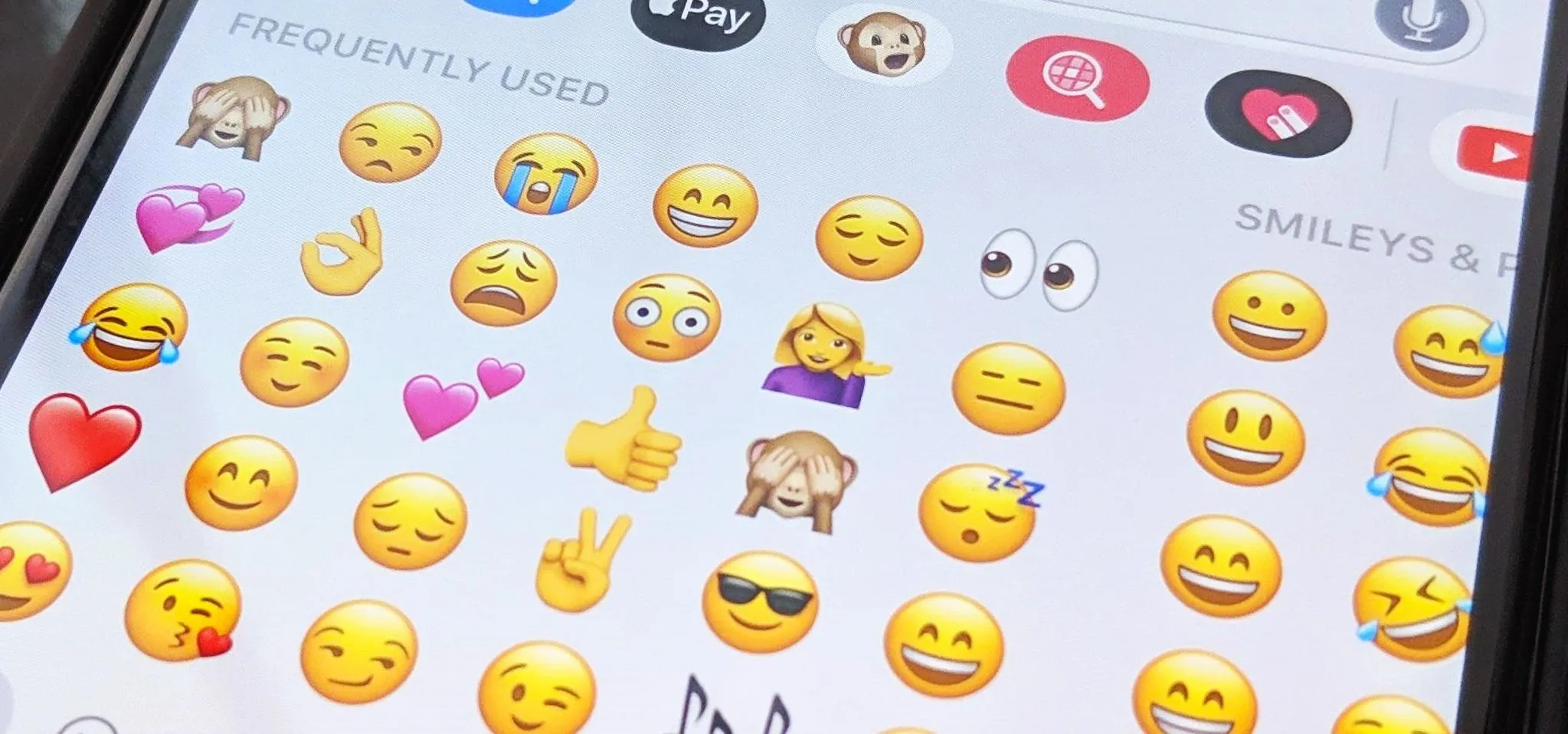Despite its name, the Frequently Used section on your iPhone's emoji keyboard features both frequently and recently used emoji, and it may contain emoji you've never even touched. If you want to remove all of those recommendations, there's an easy way to reset what you in Frequently Used to the defaults.
Maybe you used a horrible emoji once and never want to use it again. Or maybe you don't want to leave any evidence of the recent emoji discussion you had with someone in the Messages app. Perhaps you just want a fresh start. Whatever the reason, if you're unhappy with Frequently Used's listed emoji, just reset it.
What You Need to Know Before Continuing
There are a few caveats to resetting your emoji's Frequently Used section. First, there is no way to remove the Frequently Used section entirely. Second, it does not affect the Memoji stickers listed before the suggested emoji, but there's a way to disable Memoji stickers suggestions from your keyboard's settings.
The third downside is the most important: resetting Frequently Used also deletes all the custom words you've typed on the keyboard.
With "Auto-Correction" enabled for the regular keyboard, iOS may change a word to something it thought you meant, primarily for spelling mistakes. However, if you want what you actually typed, tap "X" on the suggested correction or hit the delete key and select what you typed. Eventually, your keyboard will remember what you want when you type it again.
The same applies to the "Predictive" feature. When enabled, the predictive bar shows above the keys, showing text and emoji predictions or auto-correct suggestions. If those predictions and suggestions aren't correct, you can tap the word you typed on the left side of the bar in quotation marks.
Whenever you revert auto-corrections and dismiss predictive text or emoji, your keyboard's dictionary logs it for the next time. If this is more important to you than recent or frequent emoji, stop right now. However, it may benefit you if your keyboard has a lot of erroneous custom words from when you accidentally reverted text. In that case, it may help you to reteach your keyboard.
On the plus side, resetting the keyboard does not delete any text replacements you've created, and it won't affect third-party keyboards like Gboard.
How to Clear Your Recent and Frequently Used Emoji
To reset the dictionary for Apple's keyboards on iOS 15 and later:
- Open the Setting app.
- Tap "General."
- Tap "Transfer or Reset iPhone."
- Tap "Reset."






- Tap "Reset Keyboard Dictionary."
- Enter your iPhone's passcode.
- Tap "Reset Dictionary" to confirm.






On earlier iOS versions, you would go to Settings –> General –> Reset –> Reset Keyboard Dictionary –> [Passcode] –> Reset Dictionary.
Frequently Used Emoji Resets to Apple's Defaults
Below, you can see the difference between a keyboard with actual recent and frequently used emoji (left) and one with standard pre-populated emoji (right). Yours will end up looking like the one full of prefilled emoji characters.




Now, whenever you use an emoji, it will appear in the top left spot. When you use another one, it takes its place, pushing the first one down vertically. For each new one, the older ones will keep getting pushed down vertically until they start back up on the next row's top, just to be pushed down again.
However, this is not always the case, and some emoji will stay on the left side while brand-new ones appear in the middle. Also, when you use an emoji more than once, it tends to stick to the left side of the section, assuming you'd want quicker access to the ones you use more than others.
Cover photo by Nelson Aguilar/Gadget Hacks; Screenshots by Justin Meyers/Gadget Hacks




Comments
No Comments Exist
Be the first, drop a comment!